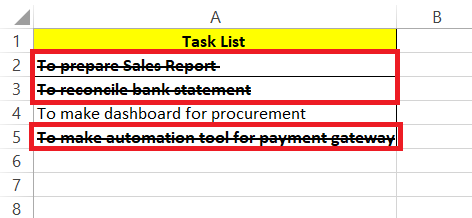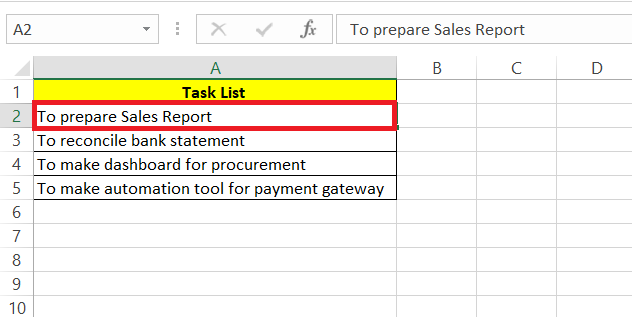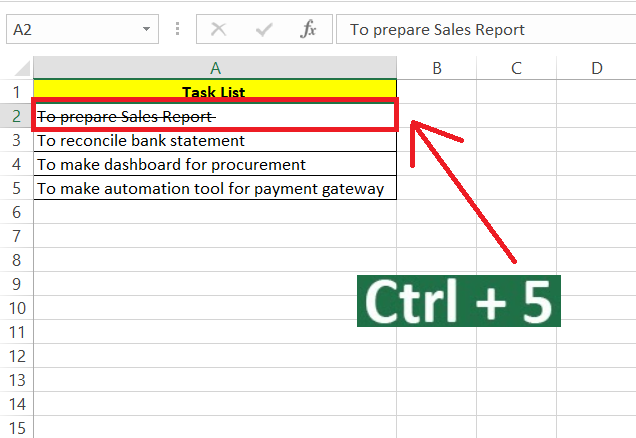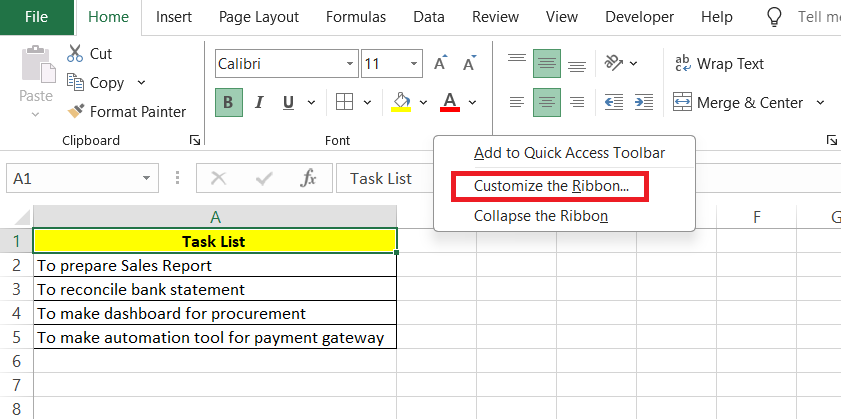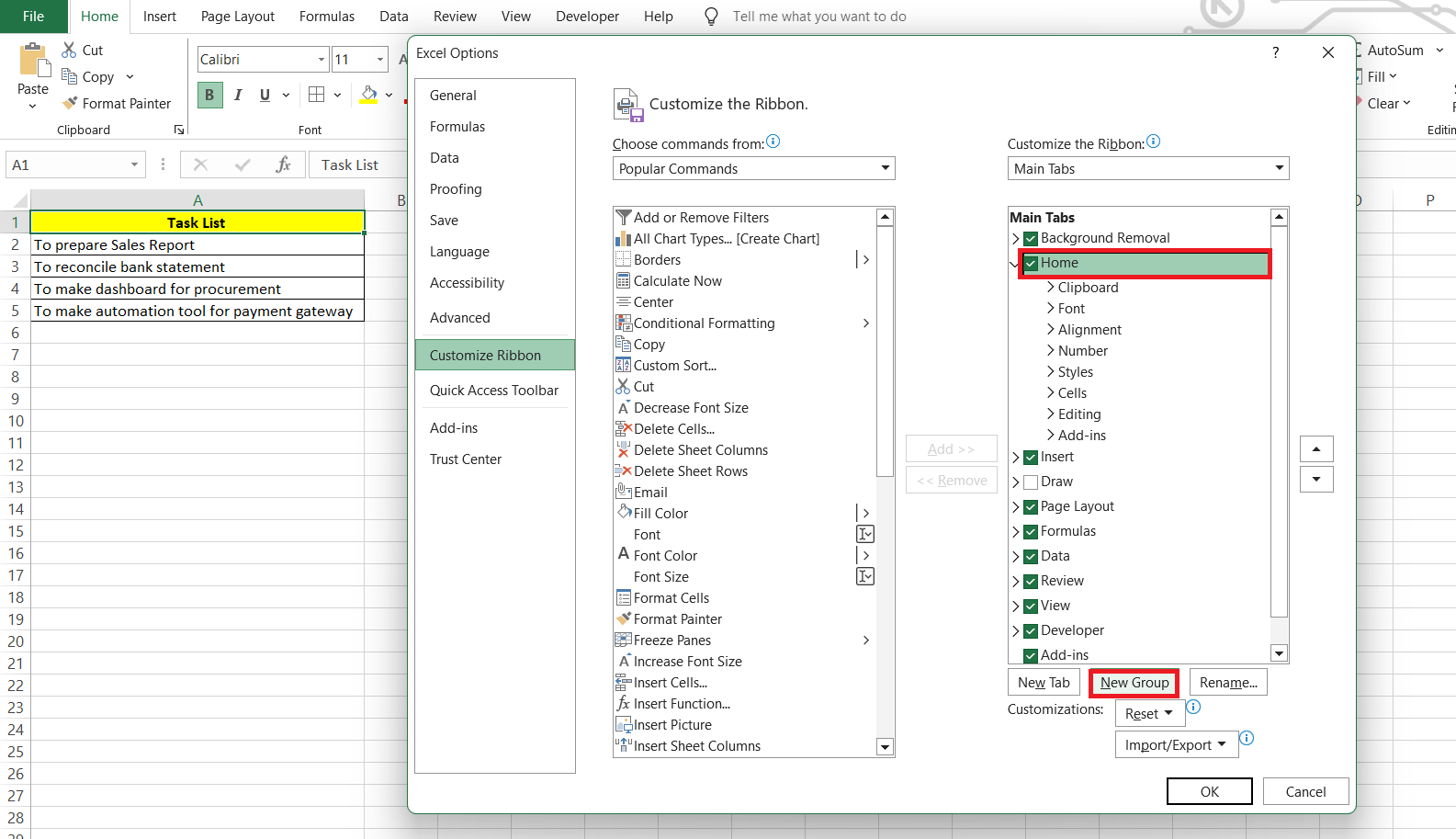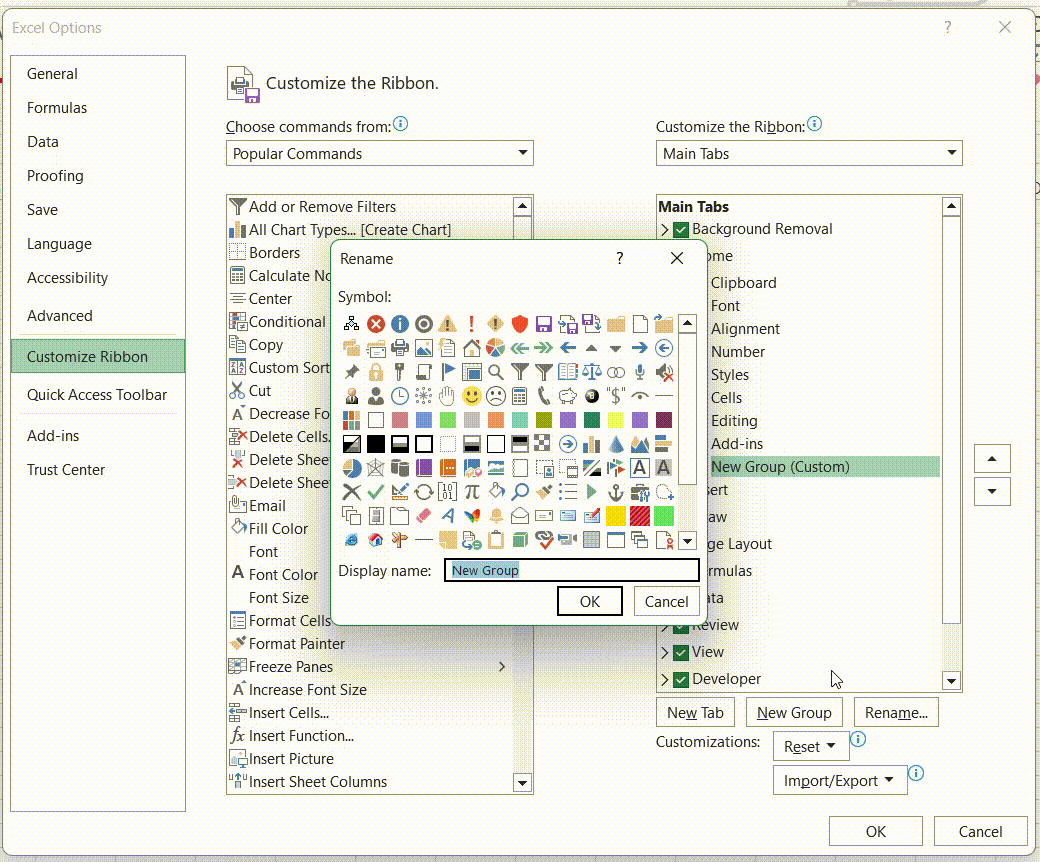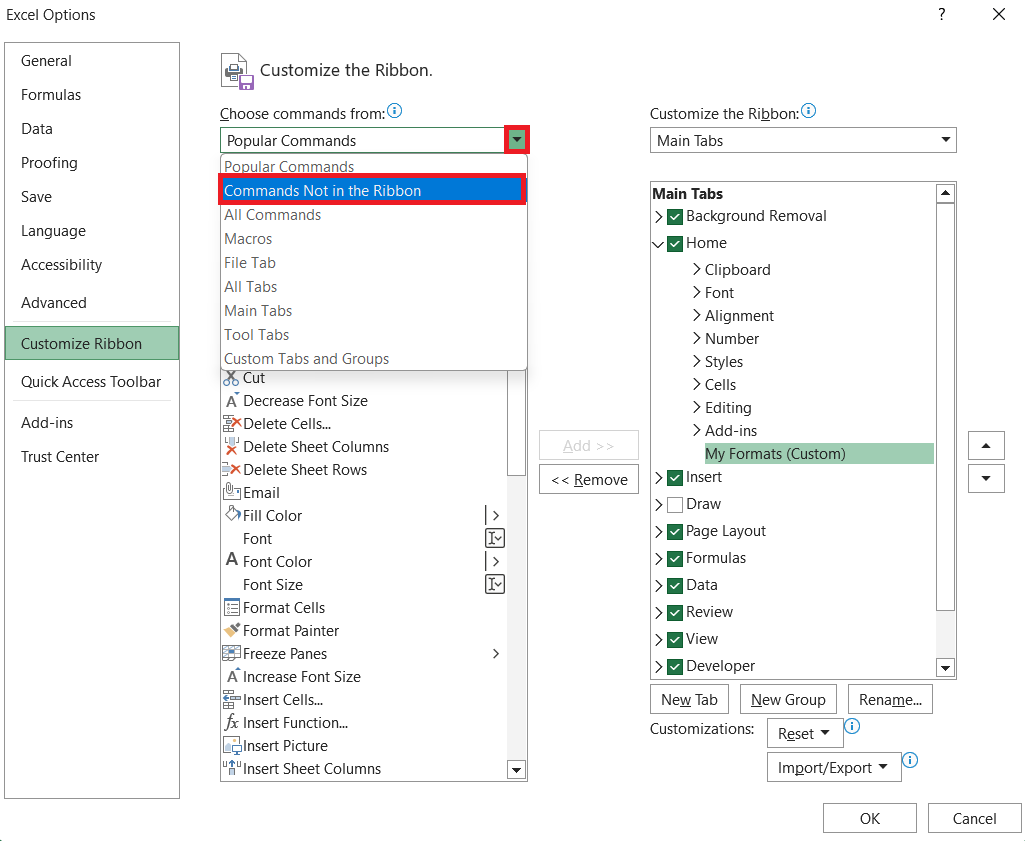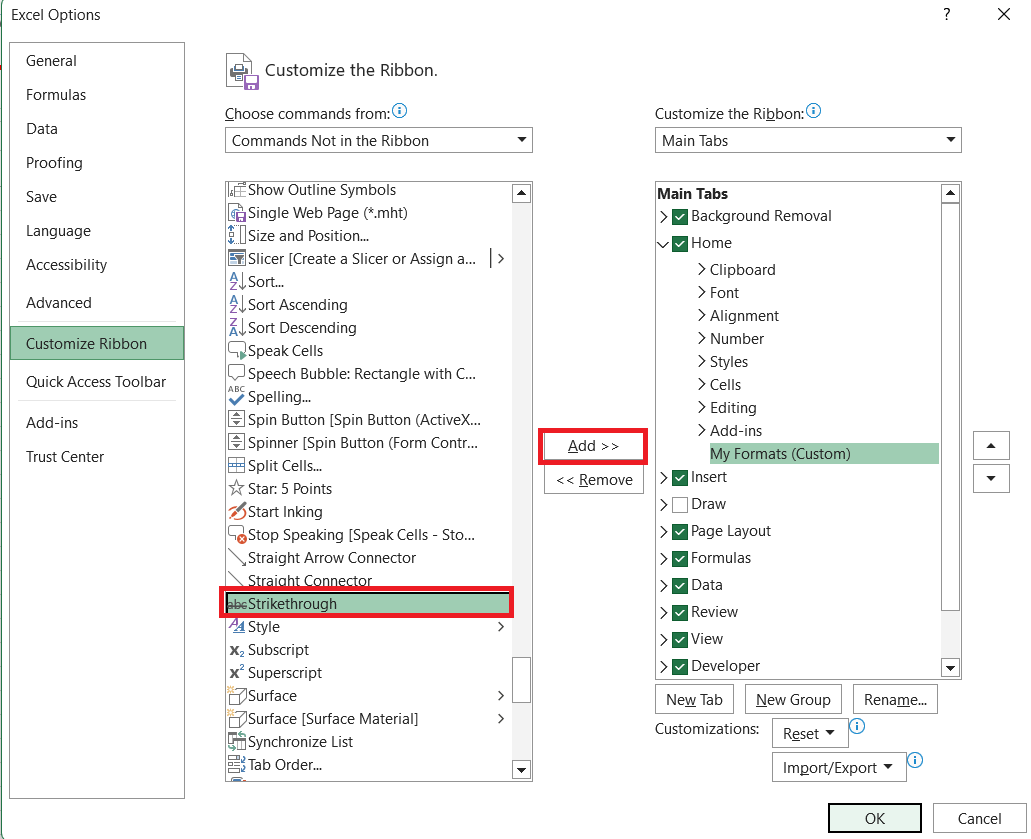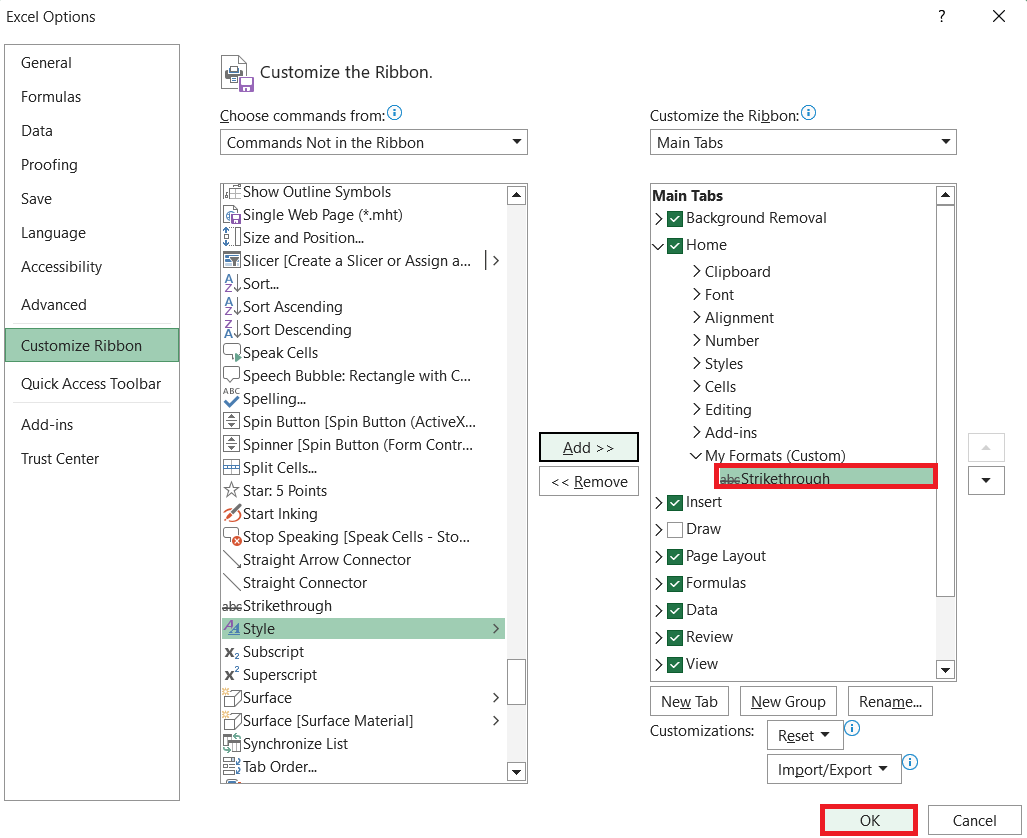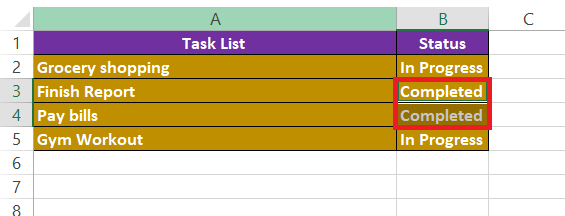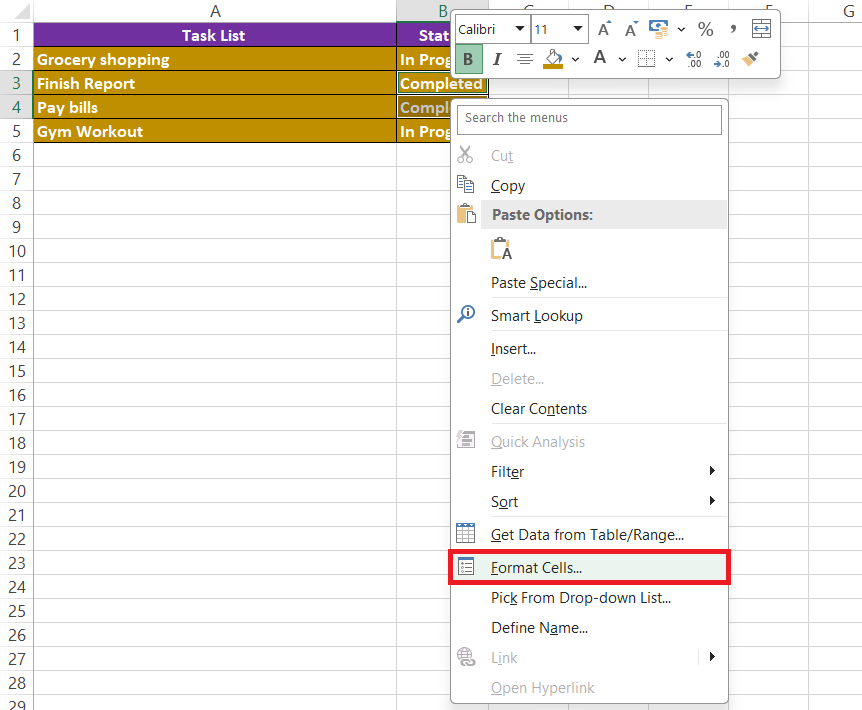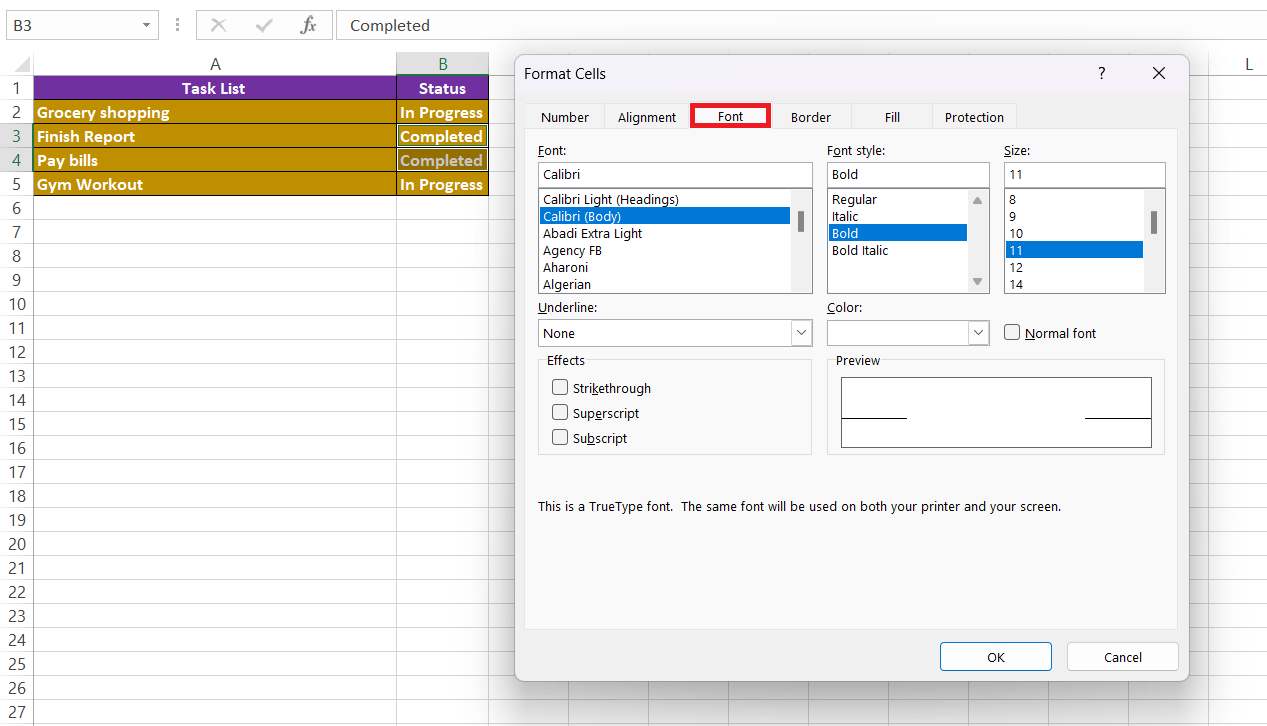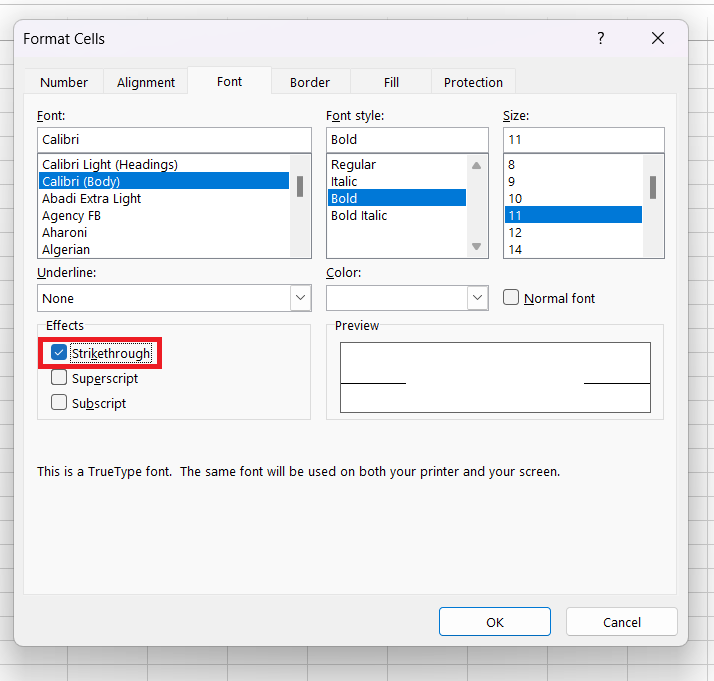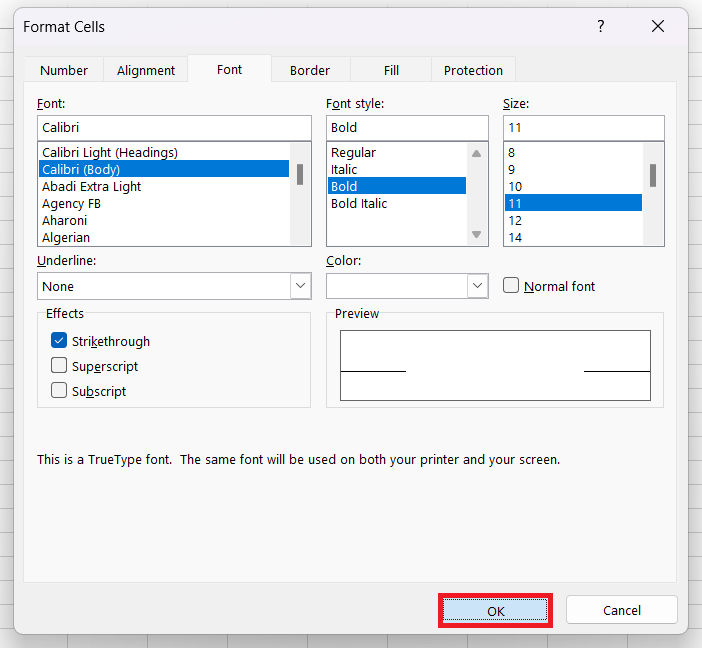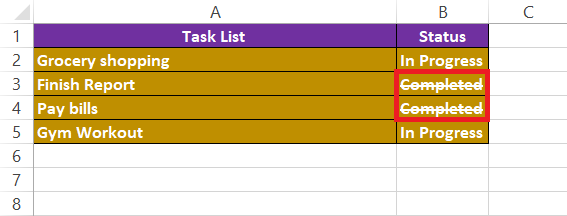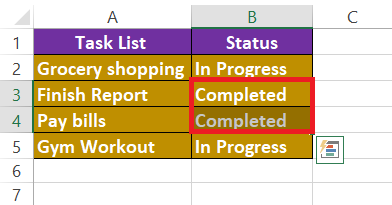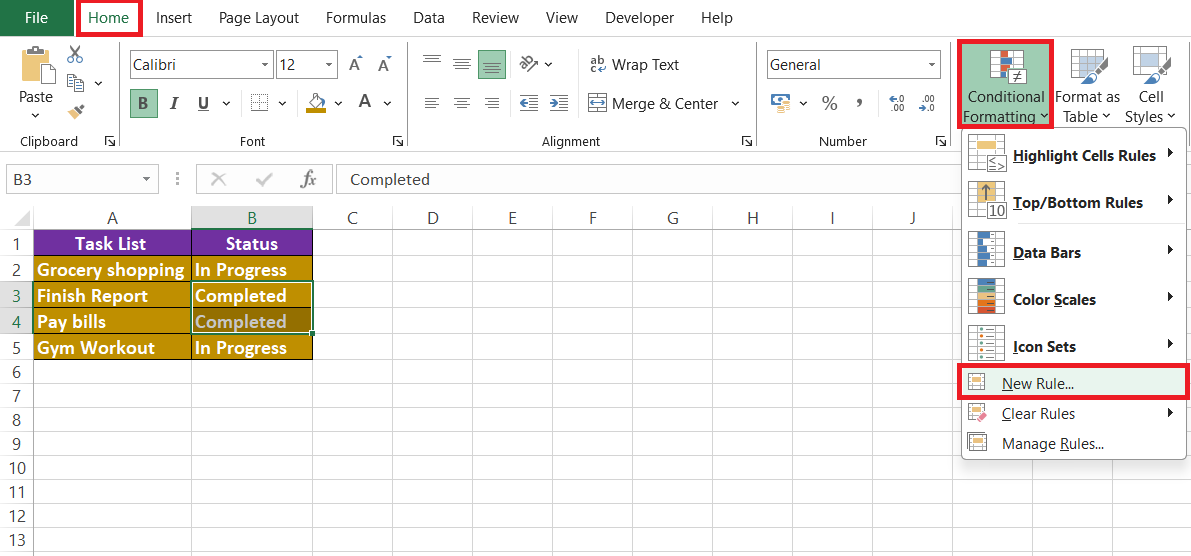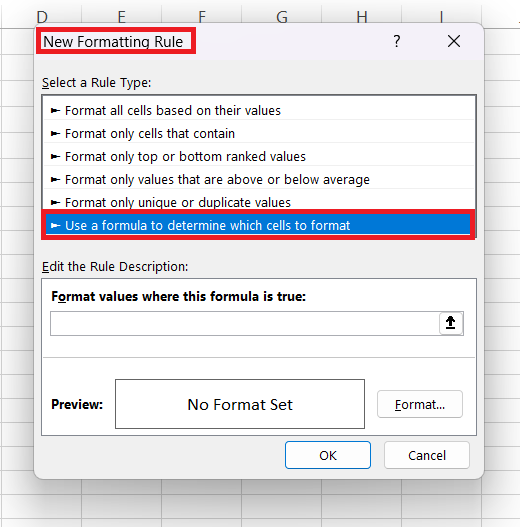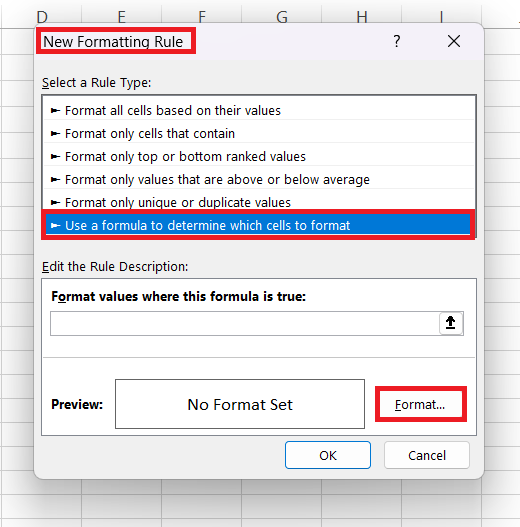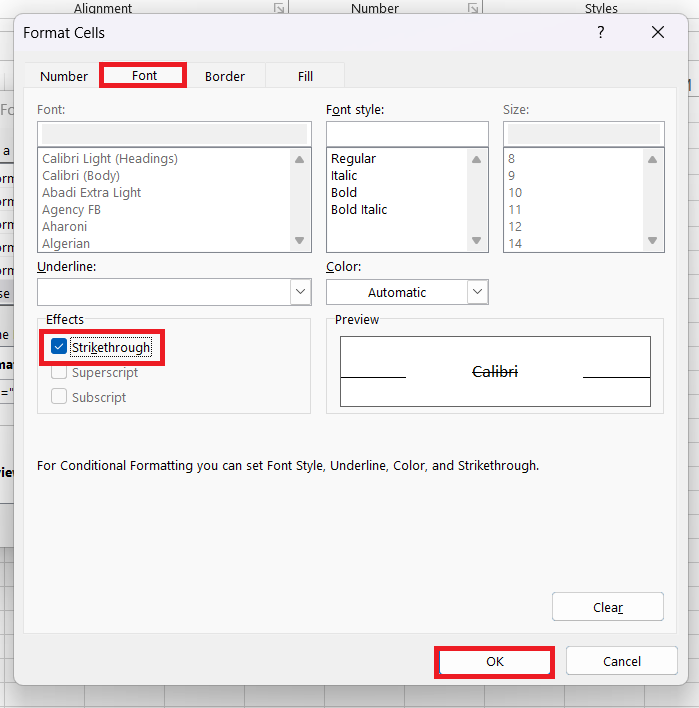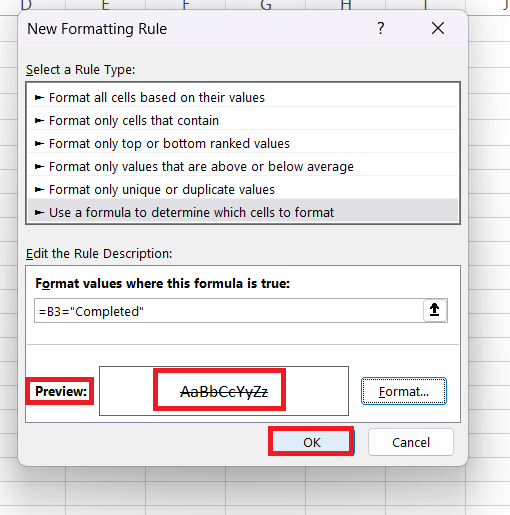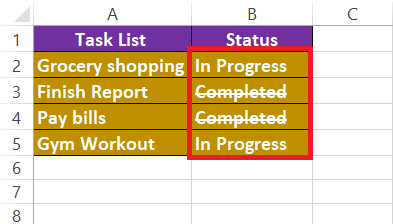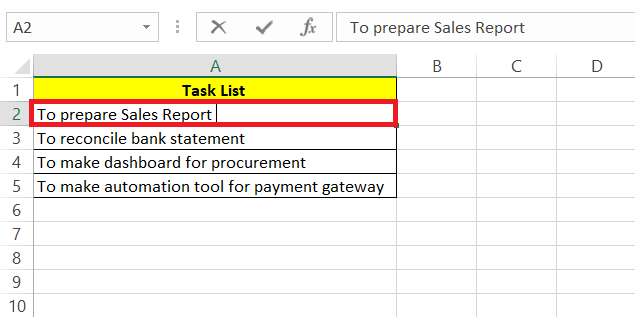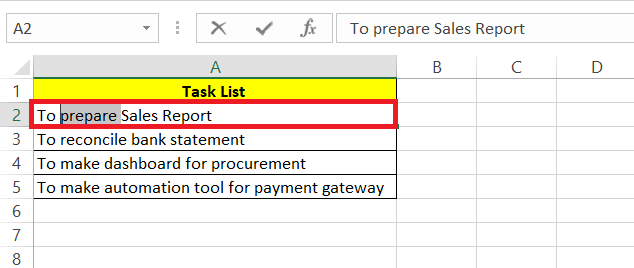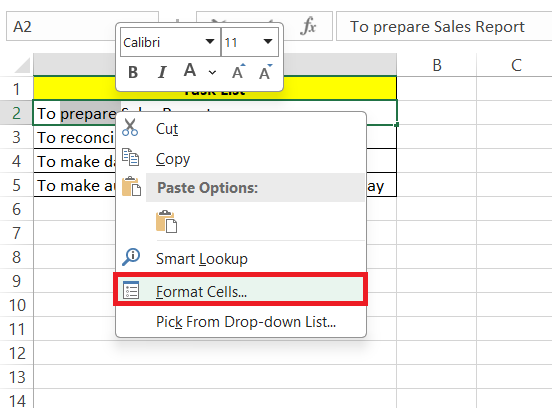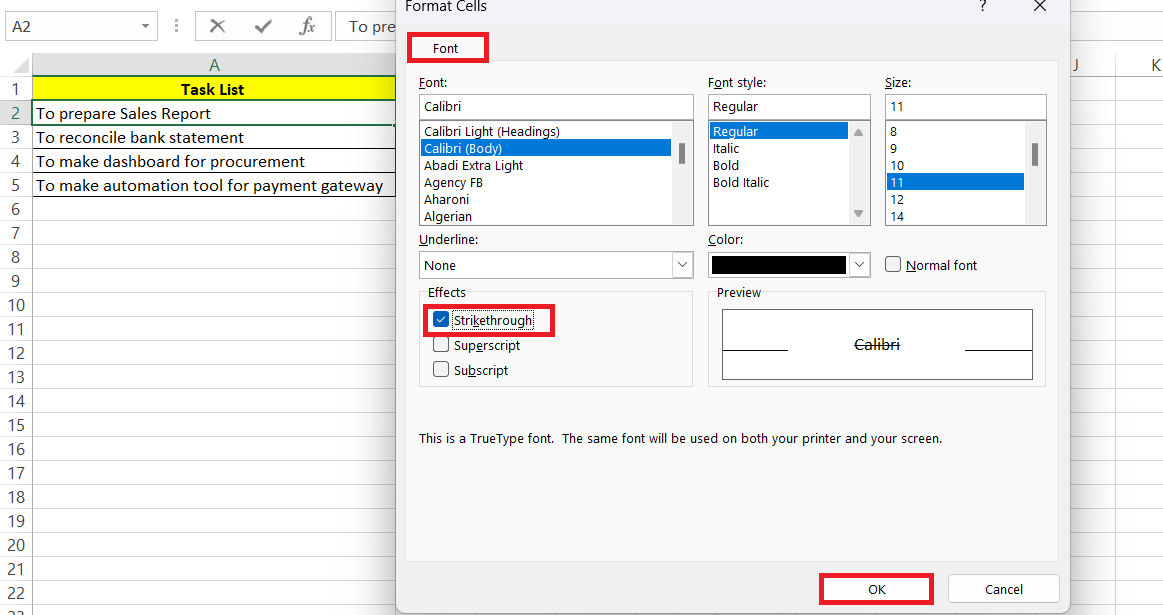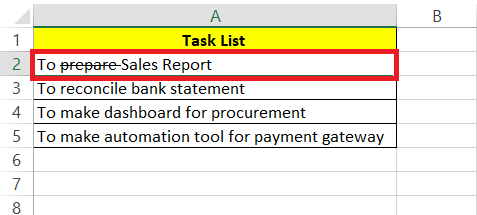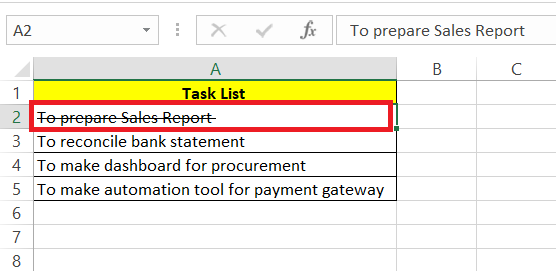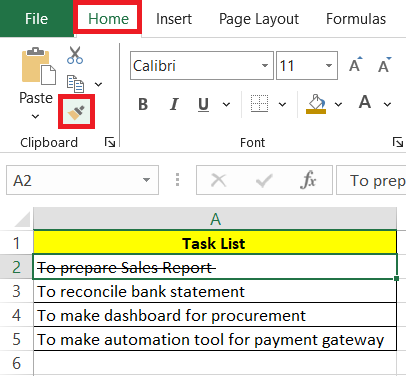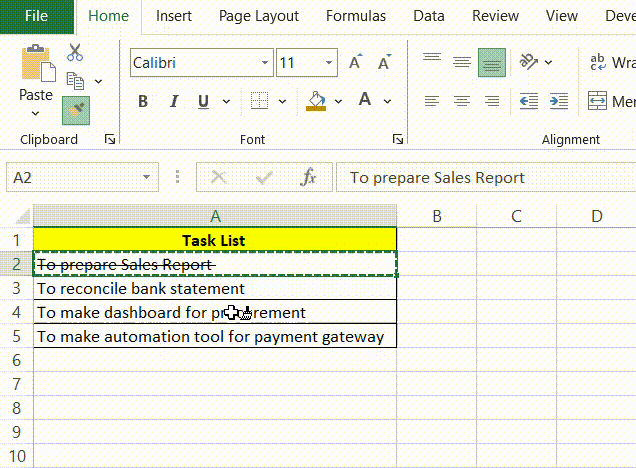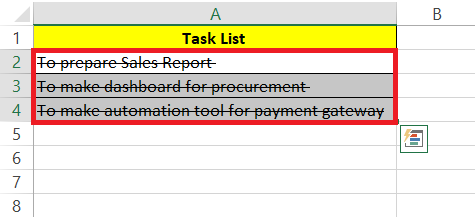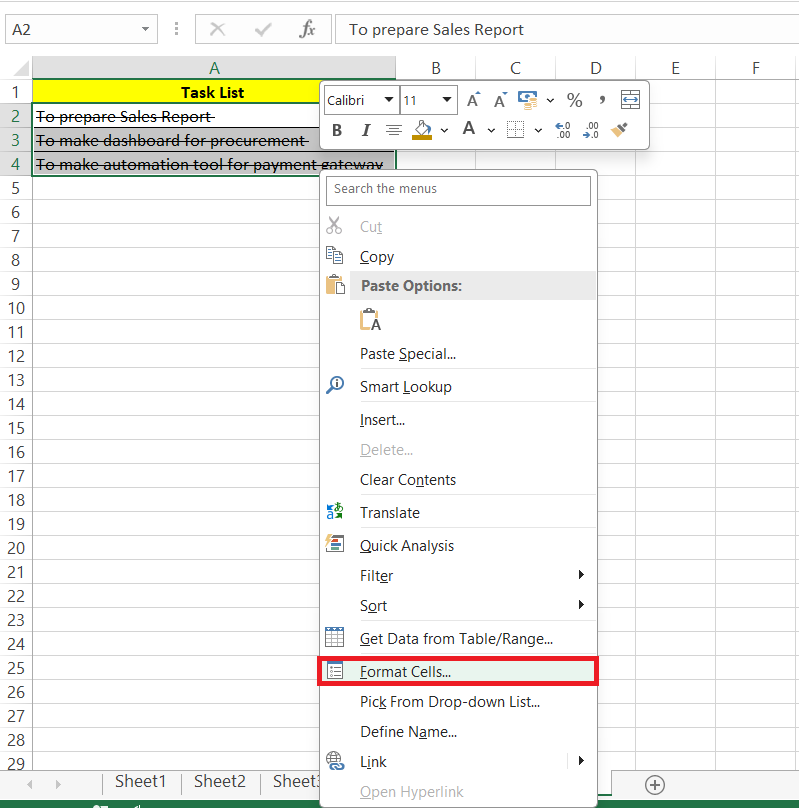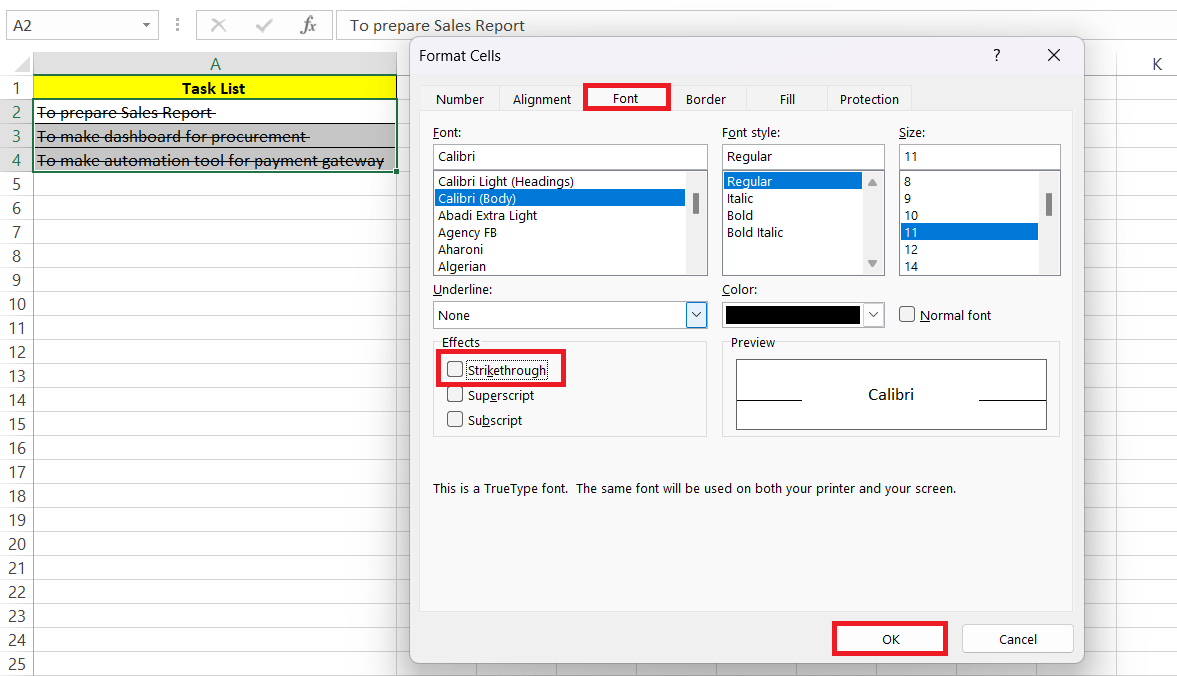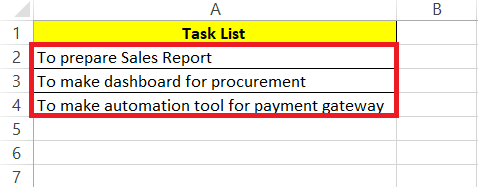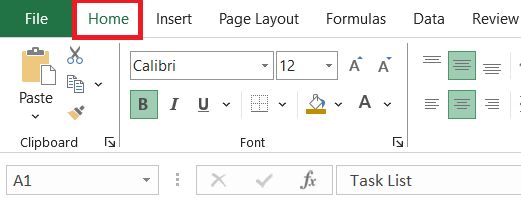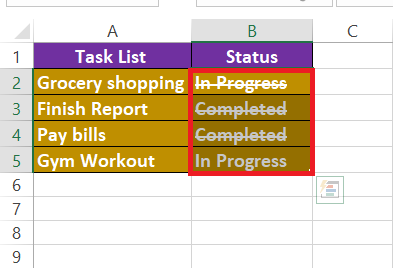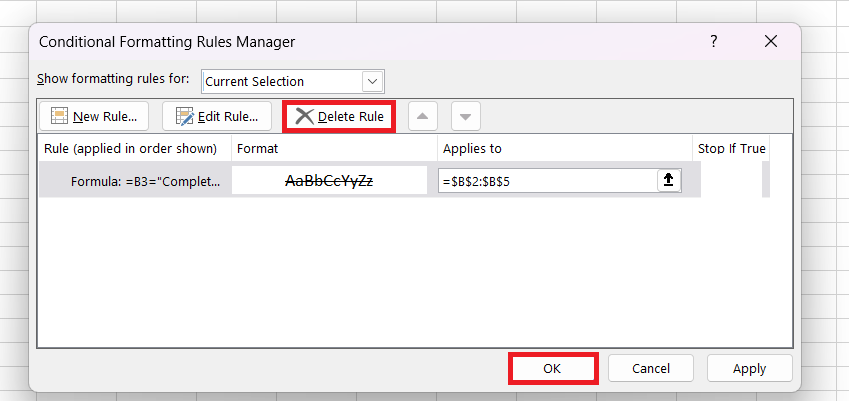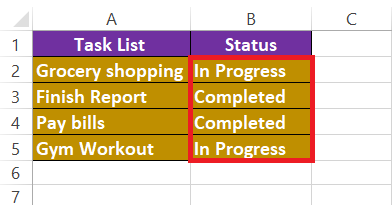

Key Takeaways:
- Purpose and Utility: Strikethrough helps in visually marking completed or irrelevant items without removing them from the spreadsheet, aiding in better data management and historical tracking.
- Keyboard Shortcuts: Apply Strikethrough quickly using keyboard shortcuts – Ctrl + 5 on Windows and Command + Shift + X on Mac – for efficient editing.
- Ribbon Customization: Customize your Excel Ribbon to include a Strikethrough button for easy access, allowing you to apply this formatting with a single click.
- Conditional Formatting: Use conditional formatting to automate Strikethrough based on specific criteria, saving time and ensuring consistency in your data presentation.
- Partial Strikethrough and Removal: Strikethrough can be applied to partial text within a cell for detailed editing, and it can be removed without affecting the underlying data, preserving data integrity.
Table of Contents
Striking Out: A Quick Overview
What Is Excel Strikethrough?
Excel Strikethrough is like your virtual highlighter but instead of making things stand out, it helps you indicate the completion or irrelevance of tasks and items directly onto your data sheet. Imagine having a to-do list and drawing a line through each item you’ve completed – that’s exactly what the Strikethrough feature does to your text or numbers in Excel cells.
Significance of Using Strikethrough in Spreadsheets
In the realm of spreadsheets, where each cell’s content carries meaning, Strikethrough plays a vital role. It’s a visual indicator to quickly communicate the status of tasks, financial entries, or any point of data without removing historical entries.
For instance, in budget tracking, a Strikethrough lets you see both original estimates and alterations at a glance. It’s an excellent way to maintain a clean yet informative spreadsheet, as it fosters a non-destructive editing environment where nothing gets lost in the shuffle.
The Strikethrough Toolkit
Method 1: Keyboard Shortcuts for Speedy Editing
If you’re all about efficiency and speed, keyboard shortcuts are your best friend in Excel. To swiftly apply the Strikethrough format to your data, simply select your desired text, cell, or cell range and press Ctrl + 5 on Windows.
Mac users, on the other hand, should use the Command + Shift + X combo. Voilà! The selected data now appears crossed out. And guess what? If you change your mind or hit the shortcut by mistake, just press the same keys again to undo the Strikethrough.
STEP 1: Select the cell you want to strikethrough.
STEP 2: Now, hold ‘CTRL+5‘. You will then see a strikethrough in the selected cell ‘A2‘.
It’s that easy – no menus, no extra clicks.
Method 2: Ribbon Customization for Easy Access
For those who prefer mouse clicks over keyboard shortcuts, customizing your Excel Ribbon is a lifesaver. By adding a Strikethrough button to the Ribbon, you can mark items as complete with a single click, any time you need. Let’s walk through the simple process:
STEP 1: Right-click anywhere on the Ribbon and choose ‘Customize the Ribbon’.
STEP 2: Choose the ‘Home’ tab and click ‘New Group’ to create a custom group for your button.
STEP 3: Name your group something like ‘My Formats’ for easy recognition.
STEP 4: With your new group selected, choose ‘Commands Not in the Ribbon’ from the drop-down menu.
STEP 5: Scroll to find ‘Strikethrough,’ select it, and click ‘Add.’
STEP 6: Hit ‘OK’ to save your changes, and presto! Your Strikethrough button is ready for action on the Ribbon.
RESULT: Now, anytime your spreadsheets need a little tidying, your trusty Strikethrough tool is just a click away.
Manual versus Automatic: Applying Strikethrough
Step-by-Step for Manual Application
Applying Strikethrough to your text manually in Excel may seem like a task, but with these easy steps, you’ll be crossing off items in no time:
STEP 1: Start by selecting the cell or range where you want to apply Strikethrough.
STEP 2: Right-click the selection and select ‘Format Cells’ from the context menu.
STEP 3: In the ‘Format Cells’ dialog box, go to the ‘Font’ tab.
STEP 4: Look for the Strikethrough checkbox and click on it to mark it.
STEP 5: Finish by clicking ‘OK,’ and you will see the Strikethrough effect applied to your selection.
RESULT: This manual method gives you the control to apply this format to specific items, maintaining a versatile and organized sheet.
Automatic Strikethrough with Conditional Formatting
Harness the power of Excel’s conditional formatting to apply a Strikethrough automatically based on certain conditions – it’s like setting your spreadsheet on autopilot. Follow these steps to create your own rule:
STEP 1: First, select the range of cells you wish to apply automatic Strikethrough to.
STEP 2: Head over to the ‘Home’ tab and locate ‘Conditional Formatting’ in the ‘Styles’ group. Click it and select ‘New Rule.’
STEP 3: In the ‘New Formatting Rule’ dialog, choose ‘Use a formula to determine which cells to format.’
STEP 4: Enter the condition formula in the box that reads “Format values where this formula is true.” For example, typing =B3="Completed" will apply Strikethrough to any cell in your selected range that contains the word “done.” After setting the formula, click ‘Format’.
STEP 5: Now move to the ‘Font’ tab, and choose ‘Strikethrough.’ Confirm all your actions with ‘OK,’ and watch as cells automatically get struck through when they meet the conditions you specified.
STEP 6: Now you can preview the strikethrough formatting selected by you, then click “OK”.
RESULT: Automatic Strikethrough ensures your spreadsheet remains up-to-date with minimal manual intervention, saving you time for more important tasks.
Special Cases and Tips
Handling Partial Strikethroughs in a Cell
Sometimes, you might want to apply a Strikethrough to just a fragment of the text in a cell, rather than the entire cell content. This precision editing can be done through a few additional steps:
STEP 1: Double-click the cell to enable editing mode or press F2 after selecting the cell.
STEP 2: Highlight only the portion of text you want to strike through by dragging your mouse over it or using the Shift + arrow keys.
STEP 3: With the text selected, either right-click and choose ‘Format Cells’ or use the familiar shortcut; ‘Ctrl + 1’.
STEP 4: In the ‘Format Cells’ dialog box, tick the ‘Strikethrough’ checkbox under the ‘Font’ tab & Click ‘OK’.
RESULT: You will see that only the selected part of the text has the Strikethrough effect.
This little trick lets you bring attention to specific parts of your data while keeping the rest untouched and clearly visible.
Gaining Efficiency with Format Painter
To replicate Strikethrough formatting across different parts of your spreadsheet with finesse, the Format Painter tool is your go-to feature. Here’s how to use it:
STEP 1: Select the cell that has the Strikethrough format you want to copy.
STEP 2: Click the ‘Format Painter’ icon in the ‘Home’ tab (it looks like a paintbrush).
STEP 3: Then, simply select the cells where you’d like to apply the same formatting.
Removing Strikethrough Without Losing Data Integrity
Purging Strikethrough formatting from your Excel cells without disturbing the actual data is straightforward. If your data’s integrity is key, follow these simple steps:
STEP 1: Click on the cell or select the range where you want to remove Strikethrough.
STEP 2: Press Ctrl + 1 to open the ‘Format Cells’ dialog box, or right-click and choose ‘Format Cells’ from the context menu.
STEP 3: Under the ‘Font’ tab, you’ll find the Strikethrough option. Uncheck the box next to ‘Strikethrough.’ Hit ‘OK’.
RESULT: And just like that, the Strikethrough is gone, leaving your data untouched and readable.
For those using conditional formatting,
STEP 1: Navigate to the ‘Home’ tab.
STEP 2: Choose ‘Conditional Formatting,’ then ‘Manage Rules.’
STEP 3: Delete the rule associated with Strikethrough.
RESULT: By unwinding the format carefully, you maintain the sanctity of your data, ensuring its accuracy and reliability for any future analysis.
Frequently Asked Questions
How to do strikethrough text in Excel?
To do strikethrough text in Excel, select the cells you want to format and then use either the keyboard shortcut Ctrl + 5 or go to the Home tab, find the ‘Font’ group, and click the Strikethrough button. These actions will cross out the text in the selected cells immediately.
What is the shortcut for strikethrough text?
The shortcut for applying strikethrough text in Excel is Ctrl + 5 on a Windows computer and Command + Shift + X on a Mac. Just select your text and press these keys to toggle the strikethrough on and off.
Can Strikethrough Be Sorted or Filtered within Excel?
Strikethrough itself cannot be directly used as a criterion for sorting or filtering in Excel. If you need to sort or filter by strikethrough, you would have to use a workaround, like adding a helper column to indicate the status of cells that are struck through and then filter based on that column.
Are There Any Strikethrough Accessibility Features for Excel Online Users?
Excel Online users have access to most of the standard accessibility features found in Excel, including strikethrough formatting. However, they currently cannot select non-adjacent cells to apply strikethrough directly. Users must format cells individually or use keyboard shortcuts. Additionally, assistive technologies like screen readers can read out formatted text, including strikethrough, to aid users with visual impairments.
Where is the font strikethrough option?
In Excel, the strikethrough option is found in the ‘Font’ group under the ‘Home’ tab. To access it, click the small diagonal arrow at the bottom right of the ‘Font’ group, which opens the ‘Format Cells’ dialog box. Alternatively, you can press Ctrl + 1. In the dialog box, go to the ‘Font’ tab and check the ‘Strikethrough’ option.
John Michaloudis is a former accountant and finance analyst at General Electric, a Microsoft MVP since 2020, an Amazon #1 bestselling author of 4 Microsoft Excel books and teacher of Microsoft Excel & Office over at his flagship MyExcelOnline Academy Online Course.

